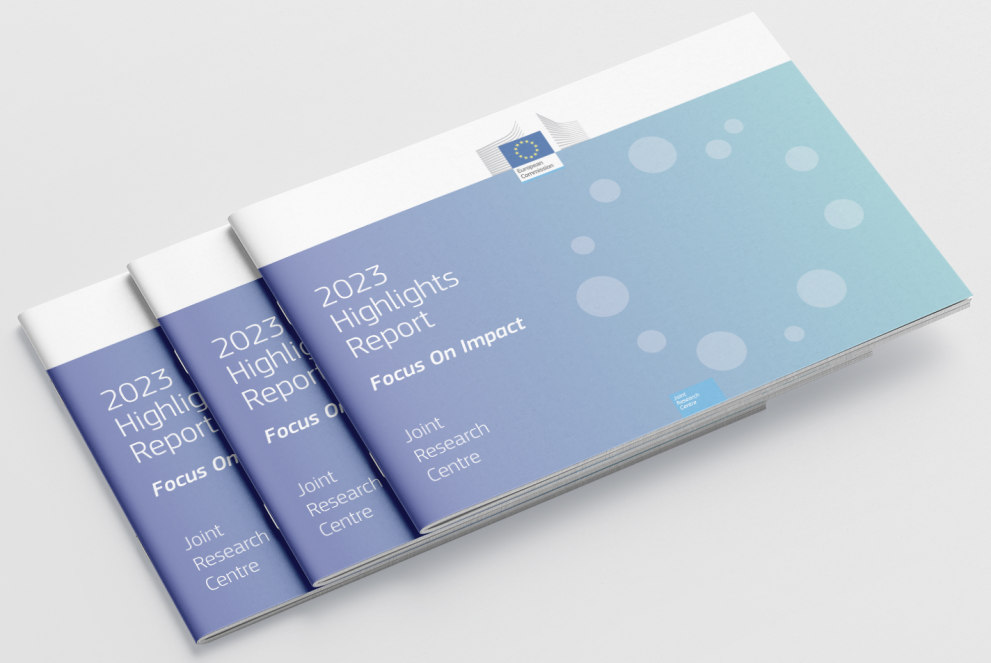
The 2023 Highlights Report shows some of the ways in which the work of the JRC has had a positive impact on society – from supporting EU policymaking with independent and reliable scientific research, to supporting Member State capacities and fostering international cooperation.
The report focuses on 11 examples. While these examples do not represent the JRC’s work in its entirety, they give a picture of its breadth and relevance. Partners from the European Commission, Member States’ authorities, and other organisations feature prominently: each example gives voice to one of these partners, with a quote showing how collaboration with the JRC helped them achieve their goals.
Here are the 11 examples from the 2023 Highlights Report:
1. Securing the raw materials at the heart of our economy
Critical raw materials are indispensable to the green and digital transitions. The JRC helped the European Commission to identify, assess, manage and overcome dependencies on third countries in the supply chain, particularly through a dedicated foresight report and the JRC’s Raw Materials Information System.
2. Keeping the power on, avoiding energy flow disruptions
The Russian aggression against Ukraine in February 2022 severely disrupted energy flows into the EU. Since the start of the crisis, the JRC helped the European Commission and the EU Member States to monitor gas flows and storage.
3. Creating a level playing field for the European digital market
Since 2014, the JRC has been instrumental in guiding EU policies that address the challenges posed by the digital landscape. Through multidisciplinary studies and impartial scientific evidence, the JRC helped position the EU as a global pioneer in championing online rights.
4. Shaping the future we want, with science
Science stands as the bedrock of informed decision-making, guiding policy with evidence, objectivity, and foresight. The JRC has consistently been guiding and supporting the European Commission with its innovative approaches and excellence.
5. Partnering on science for global impact
The JRC has a vibrant ecosystem of partnerships with the EU Member States, including regional and local authorities, as well as academia and leading national research organisations worldwide, notably with the US and Japan. It also cooperates with the United Nations in multiple fields.
6. Fostering nuclear innovation for tomorrow’s society
In 2023, the JRC celebrated 60 years of nuclear research. Over this period, nuclear research activities at the JRC have achieved important results, both in energy and non-energy applications like nuclear forensics and healthcare. The JRC also opens its world-class nuclear laboratories and facilities to external parties, within the framework of the Open Access to Research Infrastructures programme.
7. Proactively managing disasters via Earth observation
The JRC has been a frontrunner in Earth observation and scientific research related to natural hazards for over three decades. Thanks to its ability to combine satellite data with in-situ observations and artificial intelligence, it is a key partner for EU Member States and the EU Civil Protection System.
8. Monitoring, measuring and advising for climate action
The JRC has been an important backbone for scientific evidence and technical support on climate action for decades. It is a hallmark of international leadership, consistently contributing to UN reports and frequently showcasing findings at the Conferences of the Parties (COPs).
9. Protecting honey producers and consumers
Food fraud can be detrimental to public health, weaken consumer trust and jeopardise the livelihood of honest producers. The JRC played a key role in 2023 in protecting EU consumers and defending beekeepers by helping uncover suspicious fraudulent behaviour in the honey supply chain.
10. Monitoring Europe’s ecosystems, protecting biodiversity
The JRC is supporting forest conservation efforts and the Commission’s proposal for a Forest Monitoring Law via its Earth observation technology.
11. Addressing disinformation in the digital age
Disinformation poses significant risks to democratic processes, information ecosystems, and public discourse. Over the last 3 years, the JRC has played a pivotal role in analysing the ‘infodemic’ challenging European society, to help understand the implications and advise on the best strategies to fight it.
Sources
Details
- Publication date
- 16 April 2024
- Author
- Joint Research Centre
